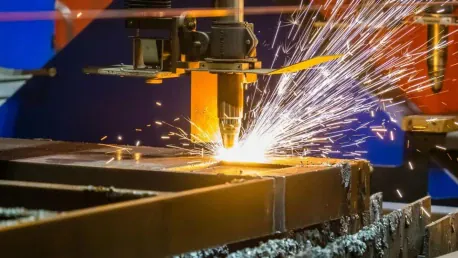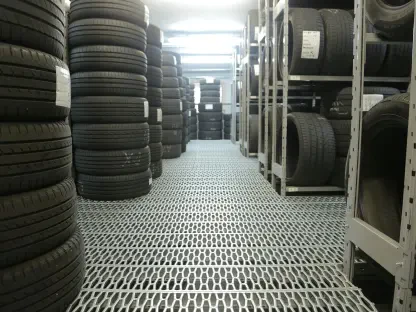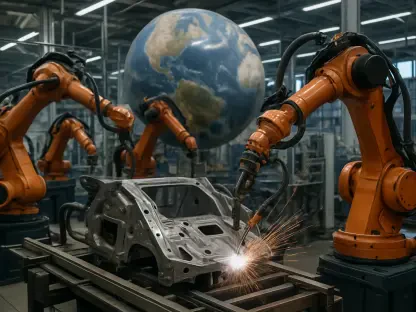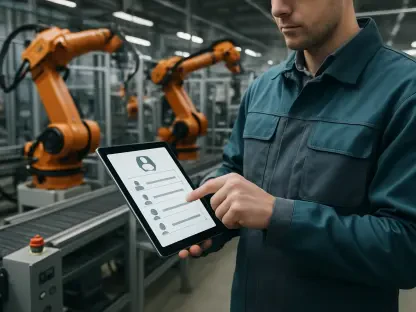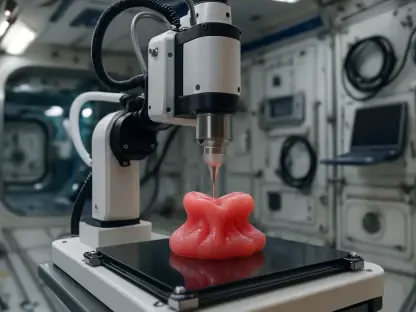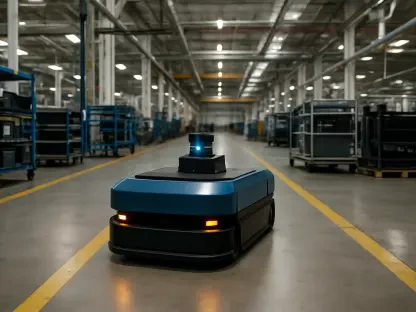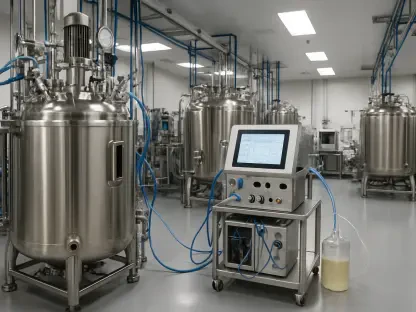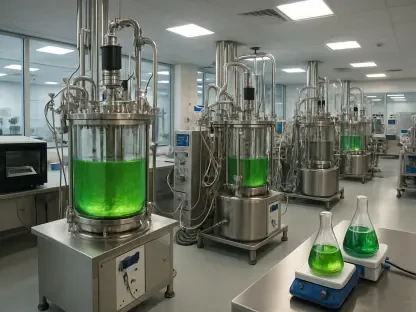In the rapidly evolving landscape of manufacturing, technological advancements play a pivotal role in driving efficiency, precision, and innovation across industries. One such technological marvel that has profoundly impacted modern manufacturing is CNC machining. With continued progress in robotics and automation, CNC (Computer Numerical Control) machining epitomizes the transformative potential of technology in this domain. This article delves into the essential role of CNC machining in contemporary manufacturing, highlighting its benefits, applications, and the factors to consider when choosing a CNC machining manufacturer. The emergence of CNC machining has revolutionized factory floors, pushing the boundaries of what can be achieved in production settings and consistently enhancing the quality of manufactured goods.
Overview of CNC Machining
CNC machining uses pre-programmed computer software to control the movements of machinery, enabling the precise manufacturing of components. This technology can accurately cut and shape metals, and occasionally plastics, without the need for human intervention. By integrating specialized machinery with advanced software, CNC machining crafts parts to exact specifications, often creating intricate geometries with impeccable precision. The capability to produce consistent and defect-free components in large volumes underscores the technology’s significance in modern production environments.
The precise nature of CNC machining is achieved through a combination of advanced software and highly specialized machinery which can follow detailed computer instructions. These instructions allow for the creation of parts with intricate designs that would be incredibly difficult, if not impossible, to achieve with traditional machining methods. Moreover, CNC machining reduces the risk of human error, leading to higher quality and more reliable products. This precision is essential for industries where accuracy and reliability are crucial, such as aerospace, medical devices, and automotive manufacturing.
Key Benefits of CNC Machining for Modern Production
Higher Precision
One of the primary advantages of CNC machining is its unparalleled accuracy. The technology follows detailed computer instructions, ensuring that thousands of identical parts can be produced with consistent precision. This high level of accuracy significantly reduces defects and enhances the overall quality of the manufactured components. Industries that require components with tight tolerances, such as the aerospace and medical fields, particularly benefit from this precision, as even minute errors can lead to significant issues in these sectors.
The precision offered by CNC machining is not only critical for quality assurance but also plays a significant role in the longevity and performance of the components produced. This precision is attained by the machinery’s capability to follow precise programmed paths and perform exact cutting operations, which result in smoothly finished parts that meet stringent quality standards. By eliminating human-induced errors, CNC machining ensures components maintain their structural integrity and operate as intended in their respective applications.
Labor Efficiency
Traditional manufacturing methods typically require a dedicated operator for each machine. In contrast, CNC machining allows a single operator to manage multiple machines simultaneously. Since these machines operate based on precise software instructions, the necessity for continuous monitoring is minimized. This leads to a marked improvement in labor efficiency, contributing to cost-effectiveness and productivity. By reallocating human resources from operational tasks to more strategic roles, companies can further enhance innovation and process optimization.
The automation of labor-intensive tasks means that skilled workers can focus on programming and maintaining the machines rather than performing repetitive tasks. This shift not only decreases labor costs but also enhances overall operational efficiency. Additionally, the machines’ automated nature means they can operate continuously, without the need for breaks, which significantly boosts production rates and ensures that deadlines are consistently met. This ability to manage workloads more effectively positions companies to respond agilely to market demands.
Material Waste Reduction
CNC manufacturing excels in minimizing material waste. Owing to its precision, the technology makes nearly perfect cuts based on accurate computer designs, thereby eliminating unnecessary waste. Unlike traditional methods that rely on the operator’s skill, CNC systems use a coordinate measurement probe to position components, reducing setup errors and ensuring higher accuracy. The result is a more sustainable manufacturing process with optimal material utilization. This reduction in waste is not only environmentally friendly but also leads to substantial cost savings in materials over time.
The reduction in material waste is especially critical when working with expensive raw materials. By optimizing the use of these materials, companies can maximize their returns on investment and reduce unnecessary expenditures. Moreover, the minimized wastage contributes to a smaller environmental footprint, aligning with growing corporate and consumer interest in sustainable practices. By implementing CNC machining, manufacturers are better positioned to adhere to environmental regulations and promote responsible production processes. This makes CNC machining an appealing choice for businesses committed to sustainability.
The Role of Automation in CNC Machining
Automation is a crucial element in the unmatched efficiency of CNC machining. It facilitates faster, more precise, and scalable production by minimizing manual intervention. Automation reduces errors, streamlines workflows, and maintains consistent quality. As Lance Thraikill, CEO of All Metals Fabricating, points out, continuous investment in automation not only improves quality and efficiency but also helps maintain competitive pricing. This strategic approach ensures a blend of innovation and skilled expertise, driving manufacturing excellence.
Integration of robotics and automated systems within CNC machining centers allows for seamless transitions between different stages of production. Automated loading and unloading of materials, coupled with real-time quality inspections, enhance overall throughput and minimize idle times. These systems can operate around the clock, maintaining high production rates and allowing companies to meet the increasing demand for their products. As a result, manufacturers can better manage supply chains, reduce lead times, and remain competitive in fast-paced markets.
CNC Machining Across Various Industries
Aerospace
In the aerospace industry, CNC machining is essential for producing complex components such as aircraft parts, heatsinks, engine components, and structural elements. The precision and quality achieved through CNC machining are vital for ensuring safety and performance in aviation. Given the high standards required for aerospace components, CNC machining’s ability to deliver parts with exacting tolerances is indispensable. This accuracy is crucial for ensuring the reliability and safety of aircraft, as even minor deviations can significantly impact performance.
The aerospace sector’s reliance on CNC machining also stems from the need for lightweight yet durable materials. CNC technology can efficiently process materials such as titanium and aluminum, which are commonly used in aerospace applications due to their strength-to-weight ratio. This capability allows manufacturers to produce complex geometries that reduce weight without compromising integrity. Consequently, CNC machining plays a vital role in advancing aerospace designs and improving the efficiency and reliability of modern aircraft.
Medical and Healthcare
CNC machining is extensively used in the medical field for manufacturing devices, implants, surgical instruments, and diagnostic equipment components. The technology’s precision guarantees high standards of safety and functionality, which are crucial in medical applications. Healthcare providers rely on CNC machining to create customized implants that perfectly match patient anatomy, ensuring better patient outcomes and faster recovery times. The ability to produce intricate and precise components is vital for the development of advanced medical devices.
Consistency and reliability are paramount in producing medical components, as errors can have severe implications on patient health. CNC machining’s precision ensures that every component meets the stringent regulations and standards required in the medical industry. This capability is particularly important for devices like pacemakers, prosthetics, and surgical tools, where exceptional accuracy and quality are non-negotiable. By leveraging CNC technology, manufacturers can innovate and improve medical solutions, contributing to advances in patient care.
Automotive
The automotive industry relies on CNC machining for producing engine parts, transmission components, and chassis parts. The technology ensures tight tolerances and high-quality standards, essential for both prototype development and mass production in the automotive sector. CNC machining’s ability to produce identical parts with minimal variation is crucial for maintaining the performance, safety, and reliability of vehicles. This precision is necessary for assembling complex components that operate efficiently within engine systems.
Beyond precision, CNC machining contributes to the automotive industry’s push towards lightweight and more fuel-efficient vehicles. CNC technology can process advanced materials like carbon fiber composites, which help reduce a vehicle’s weight without sacrificing strength. This aligns with the industry’s ongoing efforts to enhance fuel efficiency and reduce emissions. By employing CNC machining, automotive manufacturers can innovate in design and materials, leading to more sustainable and high-performance vehicles.
Electronics
In the electronics industry, CNC machining is employed to fabricate small, precise components such as circuit boards, connectors, and housings. The technology supports the accuracy required for miniature, high-performance parts, ensuring reliability and efficiency. Given the rapid advancements in electronics, the ability to produce consistent, high-quality components swiftly is critical for keeping up with market demands. CNC machining empowers electronics manufacturers to achieve this by delivering precise parts that meet stringent performance standards.
As electronic devices become more intricate and demand for miniaturization grows, CNC machining’s role becomes even more significant. The technology can create components with complex geometries and fine details needed in modern electronics, from smartphones to medical devices. By utilizing precision machining, electronics manufacturers can develop innovative products faster and with higher quality, maintaining a competitive edge in the rapidly evolving tech industry.
Oil and Gas
CNC machining plays a critical role in the oil and gas sector, where it is used to produce durable and high-precision parts like flanges, couplings, and pump components. These parts must withstand extreme conditions and meet stringent industry standards. The ability to produce robust and reliable components is essential in an industry where equipment failure can lead to severe safety and environmental consequences. CNC machining ensures that each part can endure harsh operating environments while maintaining high performance.
The oil and gas industry demands components that can tolerate high pressures and temperatures encountered in extraction and processing operations. CNC machines, with their precision and capability to handle tough materials, provide the necessary reliability. By ensuring that each part is manufactured to exact specifications, CNC machining helps mitigate risks and improves the safety and efficiency of operations. This reliability is crucial for maintaining uninterrupted production and minimizing costly downtimes in the sector.
Choosing the Right CNC Machining Manufacturer
Project Requirements
Ensure the chosen manufacturer has the necessary capabilities, such as large axis travel or high-volume production. A robust set of capabilities, including various lathes, drills, punch presses, and mills, is essential. Custom manufacturers with multi-axis CNC machines can often machine complex parts in one setup, saving time and reducing errors. Additionally, a full-service vendor should provide assembly, design, and material selection. Vetting a manufacturer’s capability ensures they can handle the complexity and scale of your specific project efficiently.
A manufacturer’s capability to integrate additional services like design assistance and material selection is also critical. Such services can help optimize part designs for manufacturability and material efficiency, reducing costs and improving performance. By choosing a versatile and well-equipped manufacturer, companies can ensure their projects are executed smoothly from start to finish, with high-quality results.
Timeline
For projects with tight deadlines, it is crucial to confirm during the quoting process that the manufacturer can meet the required timelines. Timeliness is integral to maintaining production schedules and meeting market demands. Manufacturers with a proven track record of delivering on time are essential partners in fast-paced industries where delays can lead to lost revenue and market share. Efficient workflow processes and the ability to manage high-throughput demands are vital considerations.
Collaborating with a responsive manufacturer also means that should any unexpected issues arise, they can be promptly addressed, ensuring minimal disruption to project timelines. In high-stakes industries, the ability to adhere to stringent timelines while maintaining quality standards is a significant competitive advantage. Ensuring timely project completion reinforces client trust and positions manufacturers as reliable partners in their respective fields.
Compliance
Verify that the manufacturer possesses the necessary certifications, such as ISO, to ensure quality assurance, particularly if the industry mandates specific compliance standards. Compliance with industry standards assures that the manufacturer adheres to rigorous quality control processes, ensuring the parts produced meet necessary specifications and regulatory requirements. This compliance is particularly critical for sectors such as aerospace, medical, and automotive, where failures in component quality can have serious consequences.
Certifications reflect a manufacturer’s commitment to maintaining high standards of production and quality control. They demonstrate that the company has implemented structured processes for continual improvement, risk management, and consistent product quality. Partnering with certified manufacturers not only ensures adherence to industry standards but also fosters confidence in the reliability and safety of the manufactured components.
Support and Service
Opt for a machine shop that prioritizes customer service and provides an online portal for submitting 2D prints and 3D step files. This facilitates order management and enhances the overall customer experience. Efficient support and service from a manufacturer ensure that any issues or queries are addressed promptly, contributing to smoother project workflows and better client satisfaction. The availability of an intuitive online portal simplifies the order placement and tracking process, making it easier to manage production schedules.
Responsive customer service is critical in maintaining open lines of communication, enabling real-time updates and quick resolution of any concerns that may arise. A manufacturer that values customer relationships is likely to be attentive to project details, adaptable to specific needs, and proactive in identifying potential improvements to enhance overall project outcomes. This commitment to excellent support not only improves the manufacturing experience but also builds long-term partnerships based on trust and reliability.
The Impact of CNC Machining on the Future of Manufacturing
One of the primary benefits of CNC machining is its unmatched accuracy. This technology relies on detailed computer instructions to ensure thousands of identical parts are produced with consistent precision. This accuracy significantly reduces defects and enhances the overall quality of manufactured components. Industries requiring components with tight tolerances, such as aerospace and medical fields, particularly benefit. In these sectors, even tiny errors can lead to significant issues.
The precision of CNC machining is crucial not only for quality assurance but also for the longevity and performance of the components produced. This level of precision is achieved through the machinery’s ability to follow exact programmed paths and perform precise cutting operations. This results in smoothly finished parts that meet stringent quality standards. By eliminating human-induced errors, CNC machining ensures components maintain their structural integrity and function as intended in their applications. This is especially important in industries where reliability and performance are paramount.
